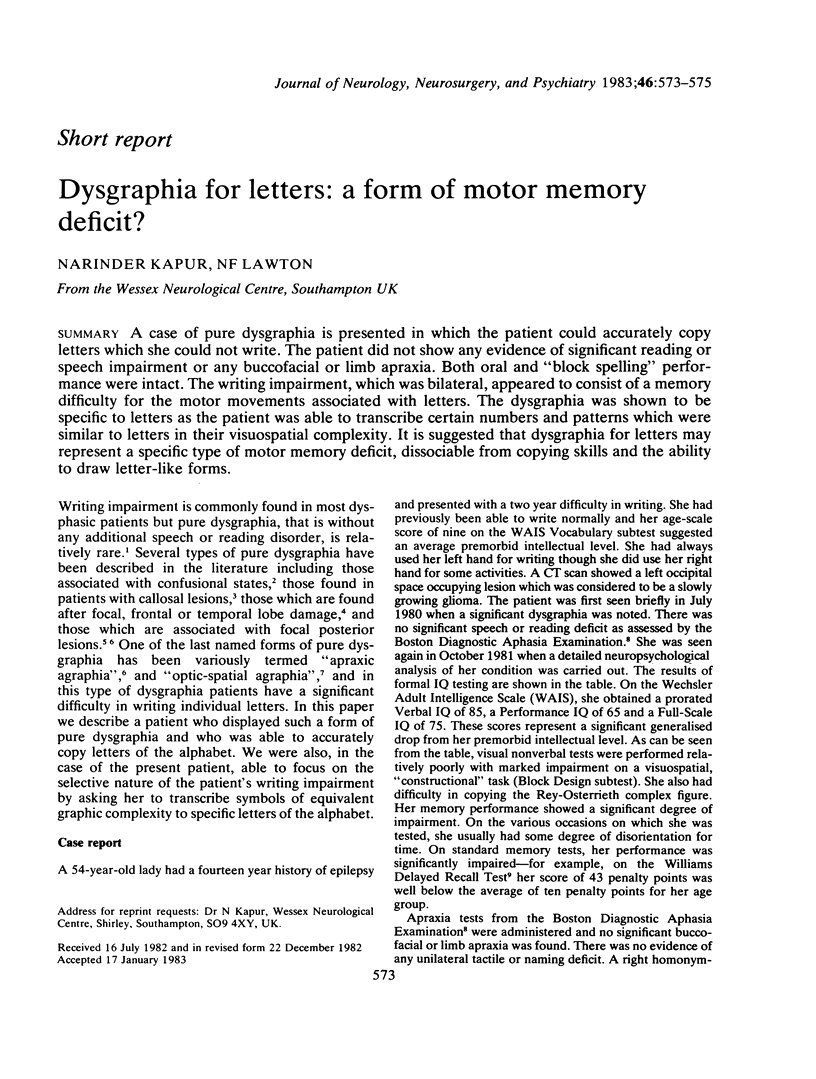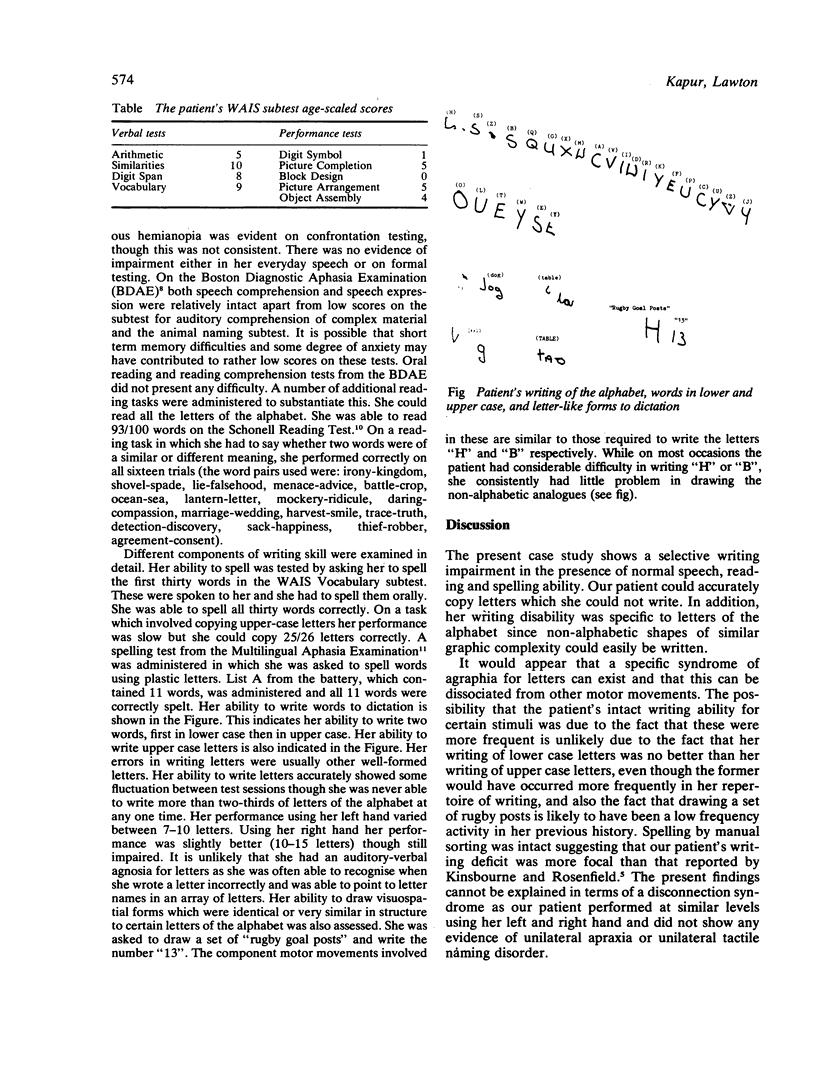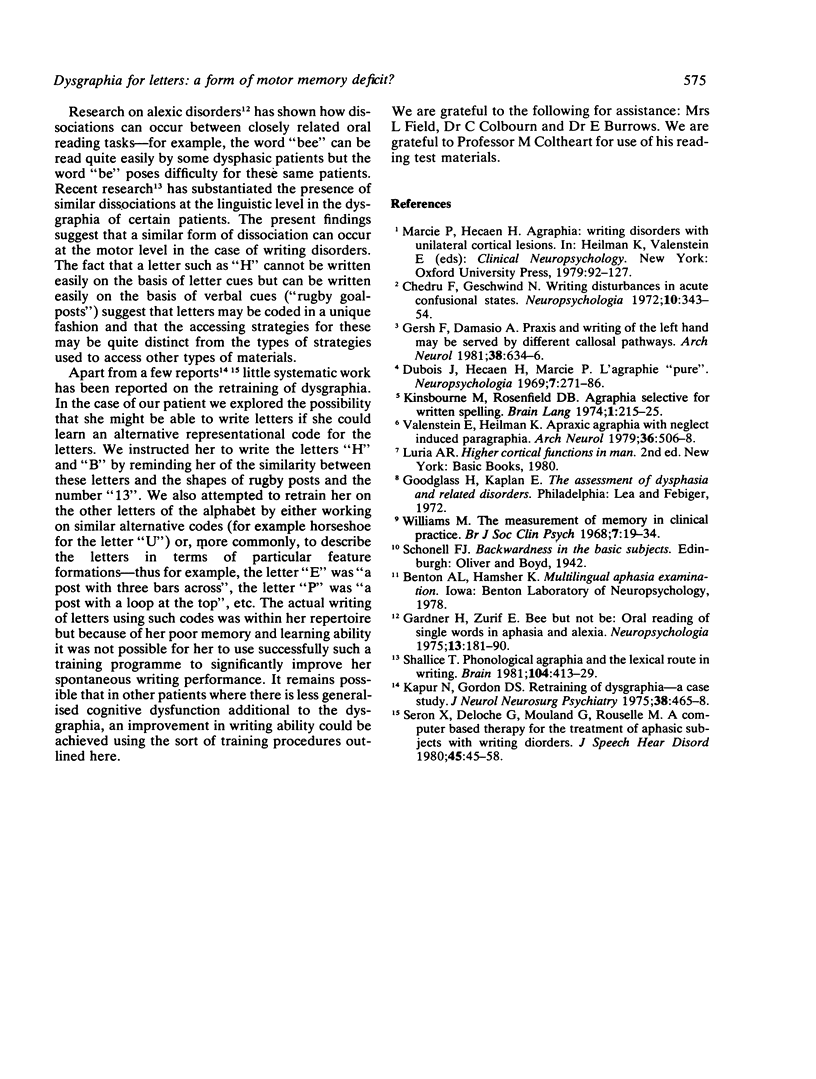Abstract
A case of pure dysgraphia is presented in which the patient could accurately copy letters which she could not write. The patient did not show any evidence of significant reading or speech impairment or any buccofacial or limb apraxia. Both oral and "block spelling" performance were intact. The writing impairment, which was bilateral, appeared to consist of a memory difficulty for the motor movements associated with letters. The dysgraphia was shown to be specific to letters as the patient was able to transcribe certain numbers and patterns which were similar to letters in their visuospatial complexity. It is suggested that dysgraphia for letters may represent a specific type of motor memory deficit, dissociable from copying skills and the ability to draw letter-like forms.
Full text
PDF


Selected References
These references are in PubMed. This may not be the complete list of references from this article.
- Chédru F., Geschwind N. Writing disturbances in acute confusional states. Neuropsychologia. 1972 Sep;10(3):343–353. doi: 10.1016/0028-3932(72)90026-7. [DOI] [PubMed] [Google Scholar]
- Gardner H., Zurif E. Bee but not be: oral reading of single words in aphasia and alexia. Neuropsychologia. 1975 Apr;13(2):181–190. doi: 10.1016/0028-3932(75)90027-5. [DOI] [PubMed] [Google Scholar]
- Gersh F., Damasio A. R. Praxis and writing of the left hand may be served by different callosal pathways. Arch Neurol. 1981 Oct;38(10):634–636. doi: 10.1001/archneur.1981.00510100062009. [DOI] [PubMed] [Google Scholar]
- Kapur N., Gordon D. S. Retraining of dysgraphia - a case study. J Neurol Neurosurg Psychiatry. 1975 May;38(5):465–468. doi: 10.1136/jnnp.38.5.465. [DOI] [PMC free article] [PubMed] [Google Scholar]
- Seron X., Deloche G., Moulard G., Rousselle M. A computer-based therapy for the treatment of aphasic subjects with writing disorders. J Speech Hear Disord. 1980 Feb;45(1):45–58. doi: 10.1044/jshd.4501.45. [DOI] [PubMed] [Google Scholar]
- Shallice T. Phonological agraphia and the lexical route in writing. Brain. 1981 Sep;104(3):413–429. doi: 10.1093/brain/104.3.413. [DOI] [PubMed] [Google Scholar]
- Valenstein E., Heilman K. M. Apraxic agraphia with neglect-induced paragraphia. Arch Neurol. 1979 Aug;36(8):506–508. doi: 10.1001/archneur.1979.00500440076016. [DOI] [PubMed] [Google Scholar]


